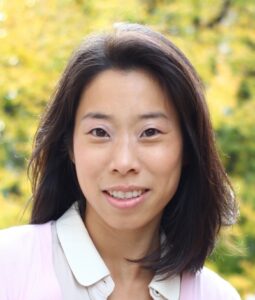Engaged Anthropology Grant: Roseann Liu

Roseann Liu is a Visiting Assistant Professor at Swarthmore College. In 2013 she received a Dissertation Fieldwork Grant to to aid research on “Educating for Justice: Culturally Relevant Pedagogy and a Charter School’s Pursuit of Racial Equality,” supervised by Dr. Kathleen D. Hall. In 2015 Dr. Liu received an Engaged Anthropology Grant to aid engaged activities on ‘”Protocol and Professional Development, Reciprocity and Representation”.
Ever since the rise of multicultural education in the U.S., there have been efforts made to include minority students’ histories and cultures. More often than not, these efforts have resulted in token lessons or special celebrations that only scratch the surface. The school in which I conducted fieldwork was noteworthy for its thoughtful approach toward including marginalized students’ histories and cultures into its curricular programs. However, it still struggled with how to teach, for example, Asian American history and African American history in a way that was not compartmentalized. This resulted in students’ categorization of certain lessons as being “for” certain racial/ethnic groups. During Asian-American week, black students asked questions like “Where were we?” and likewise, Asian-American students wanted to know more about the role that Asian Americans played in the civil rights movement. Part of the goal of this engaged anthropology grant was to provide teachers with the tools to highlight the intersection of different minority groups in American history, and the time to be able to revise their social studies curriculum so that it was clear that these groups’ histories did not exist in a vacuum. This grant allowed teachers to engage in professional development, and dedicated time to think about a social studies unit that would specifically address the student population that was mostly comprised of black and Asian students.
Another goal of the engaged anthropology grant was to create more reciprocal relationships with practitioners at the school around ethnographic representation. A series of meetings took place with board members and administrators at the school so that we could begin a dialogue about the findings from my dissertation research, and the role of ethnographers in schools more generally. The first meeting included a presentation of the major findings from my dissertation and an opportunity for school members to respond in person that provided their own perspectives on my ethnography. The next step included chapter-by-chapter written feedback that school members provided to me. Shortly before I engaged in final revision of the dissertation, my dissertation committee met with school members to discuss issues of ethnographic representation, and more broadly explaining what anthropology and ethnography offers in terms of understanding broader social problems. We also discussed school members’ perspectives on my findings and the final dissertation was revised with their feedback in mind. In the final draft of the dissertation, I wrote a more nuanced explanation of the school’s founding history, it’s mission, and its curricular programs.
The dialogue also prompted me to provide, from my perspective, a realistic understanding of the forms of financial and human resources that can or cannot be expected, the specific research activities ethnographers are likely to engage in, and the timeline of moving from fieldwork to findings. This dialogue helped them consider the level of access they want to provide, to weigh the potential benefits against the costs of participating in external research, and to manage expectations around reciprocity. From these dialogues the board has been engaged in a process for thinking through how to entertain requests from researchers to conduct research in their school.